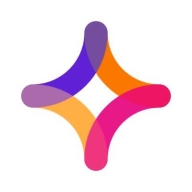

Teradata and Jitterbit Harmony are products in the data management and integration sector. Users prefer Teradata for scalability and analytics, but Jitterbit Harmony is favored for features and cost-effectiveness.
Features: Teradata offers high scalability and advanced analytics, which are particularly beneficial for large data warehousing. Its parallel processing and linear scalability ensure consistent performance. Jitterbit Harmony is known for seamless integration capabilities, ease of use, and pre-built Salesforce connectors, making it ideal for quick data connections.
Room for Improvement: Teradata's complex deployment process could be simplified, and the user interface made more intuitive for non-experts. Its support for more user-friendly integration tools would be beneficial. Jitterbit Harmony could enhance some features for more complex analytics tasks, improve the ability to handle larger datasets, and expand customization options for integration needs.
Ease of Deployment and Customer Service: Teradata, while supported robustly, has a more complex implementation process. Jitterbit Harmony is praised for its straightforward deployment model and responsive customer support, ensuring a smooth implementation experience and high deployment efficiency.
Pricing and ROI: Teradata involves higher initial setup costs, justified by comprehensive analytics. It offers substantial ROI for extensive analytics-focused enterprises. Jitterbit Harmony's lower setup costs reflect in strong ROI, with more affordable pricing and quicker deployment appealing to cost-conscious organizations seeking efficient data integration.
We have realized a return on investment, with a reduction of staff from 27 to eight, and our current return on investment is approximately 14%.
The customer support for Teradata has been great.
Customer support is very good, rated eight out of ten under our essential agreement.
The technical support from Teradata is quite advanced.
This expansion can occur without incurring downtime or taking systems offline.
Teradata's scalability is great; it's been awesome.
Scalability is complex as you need to purchase a license and coordinate with Teradata for additional disk space and CPU.
I find the stability to be almost a ten out of ten.
The workload management and software maturity provide a reliable system.
Unlike SQL and Oracle, which have in-built replication capabilities, we don't have similar functionality with Teradata.
If Teradata could provide a list of certified experts, that would be fantastic.
Teradata is much more expensive than SQL, which is well-performed and cheaper.
Initially, it may seem expensive compared to similar cloud databases, however, it offers significant value in performance, stability, and overall output once in use.
We spent roughly $295,000 on setup costs.
Teradata's security helps our organization meet compliance requirements such as GDPR and IFRS, and it is particularly essential for revenue contracting or revenue recognition.
The data mover is valuable over the last two years as it allows us to achieve data replication to our disaster recovery systems.
| Product | Market Share (%) |
|---|---|
| Teradata | 0.8% |
| Jitterbit Harmony | 0.6% |
| Other | 98.6% |


| Company Size | Count |
|---|---|
| Small Business | 8 |
| Midsize Enterprise | 3 |
| Large Enterprise | 1 |
| Company Size | Count |
|---|---|
| Small Business | 26 |
| Midsize Enterprise | 12 |
| Large Enterprise | 49 |
Jitterbit Harmony offers an advanced integration platform that simplifies data transformation, helps users quickly connect apps, and automates workflows, streamlining complex business processes efficiently.
Designed to meet the high demands of modern businesses, Jitterbit Harmony enables seamless integration across cloud and on-premise environments. By leveraging its powerful tools and user-friendly design, users can accelerate innovation, reduce operational costs, and enhance productivity. It bridges the gap between traditional and emerging technologies, ensuring organizations can adapt quickly to market changes and remain competitive.
What are the key features of Jitterbit Harmony?Jitterbit Harmony finds its application across numerous industries, from enhancing data integration in the healthcare sector to optimizing supply chain logistics in manufacturing. It supports financial institutions by improving transaction processing and facilitates real-time data connectivity in retail environments, making it a versatile choice for diverse industries looking to innovate rapidly.
Teradata is a powerful tool for handling substantial data volumes with its parallel processing architecture, supporting both cloud and on-premise environments efficiently. It offers impressive capabilities for fast query processing, data integration, and real-time reporting, making it suitable for diverse industrial applications.
Known for its robust parallel processing capabilities, Teradata effectively manages large datasets and provides adaptable deployment across cloud and on-premise setups. It enhances performance and scalability with features like advanced query tuning, workload management, and strong security. Users appreciate its ease of use and automation features which support real-time data reporting. The optimizer and intelligent partitioning help improve query speed and efficiency, while multi-temperature data management optimizes data handling.
What are the key features of Teradata?In the finance, retail, and government sectors, Teradata is employed for data warehousing, business intelligence, and analytical processing. It handles vast datasets for activities like customer behavior modeling and enterprise data integration. Supporting efficient reporting and analytics, Teradata enhances data storage and processing, whether deployed on-premise or on cloud platforms.
We monitor all Data Integration reviews to prevent fraudulent reviews and keep review quality high. We do not post reviews by company employees or direct competitors. We validate each review for authenticity via cross-reference with LinkedIn, and personal follow-up with the reviewer when necessary.